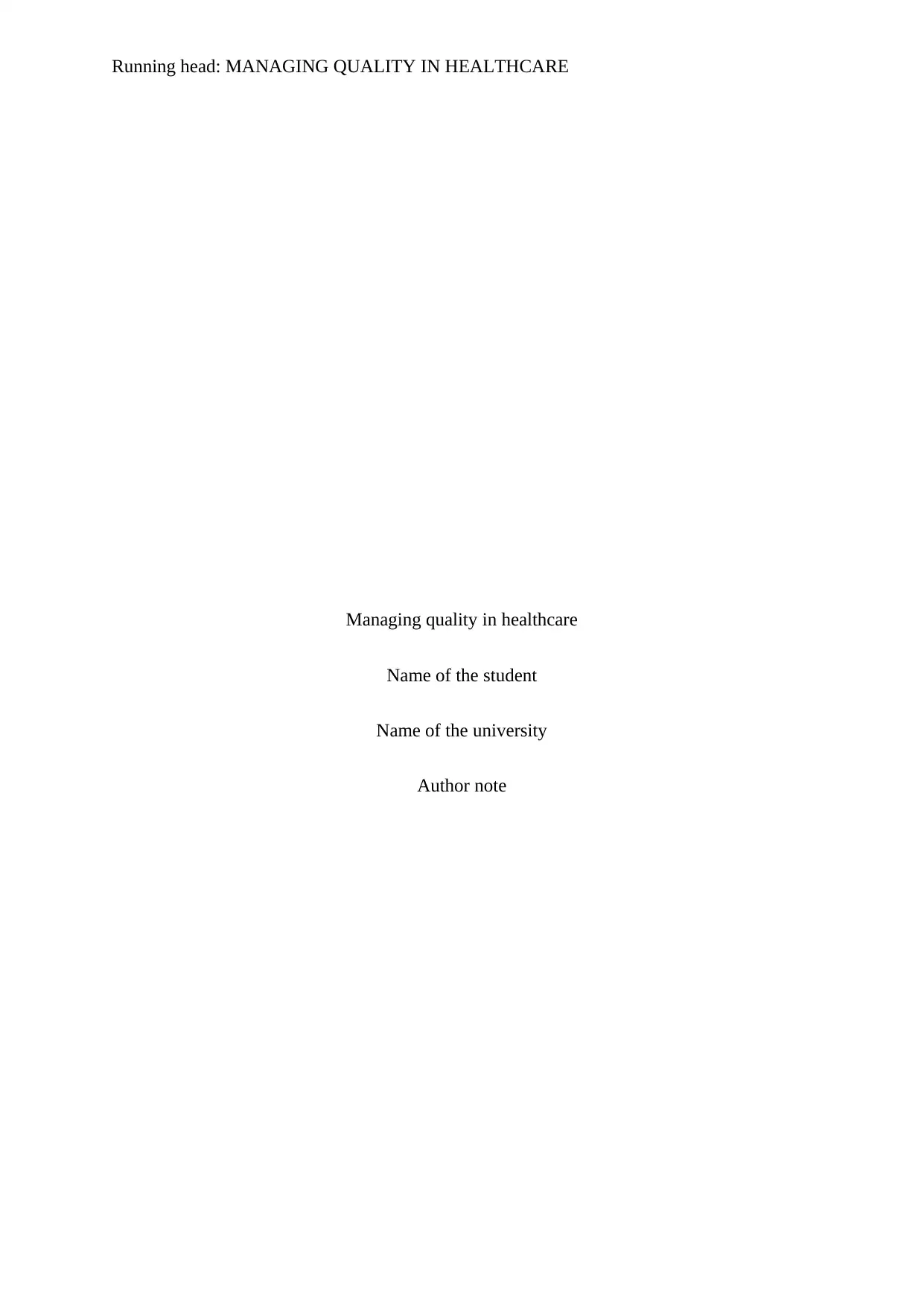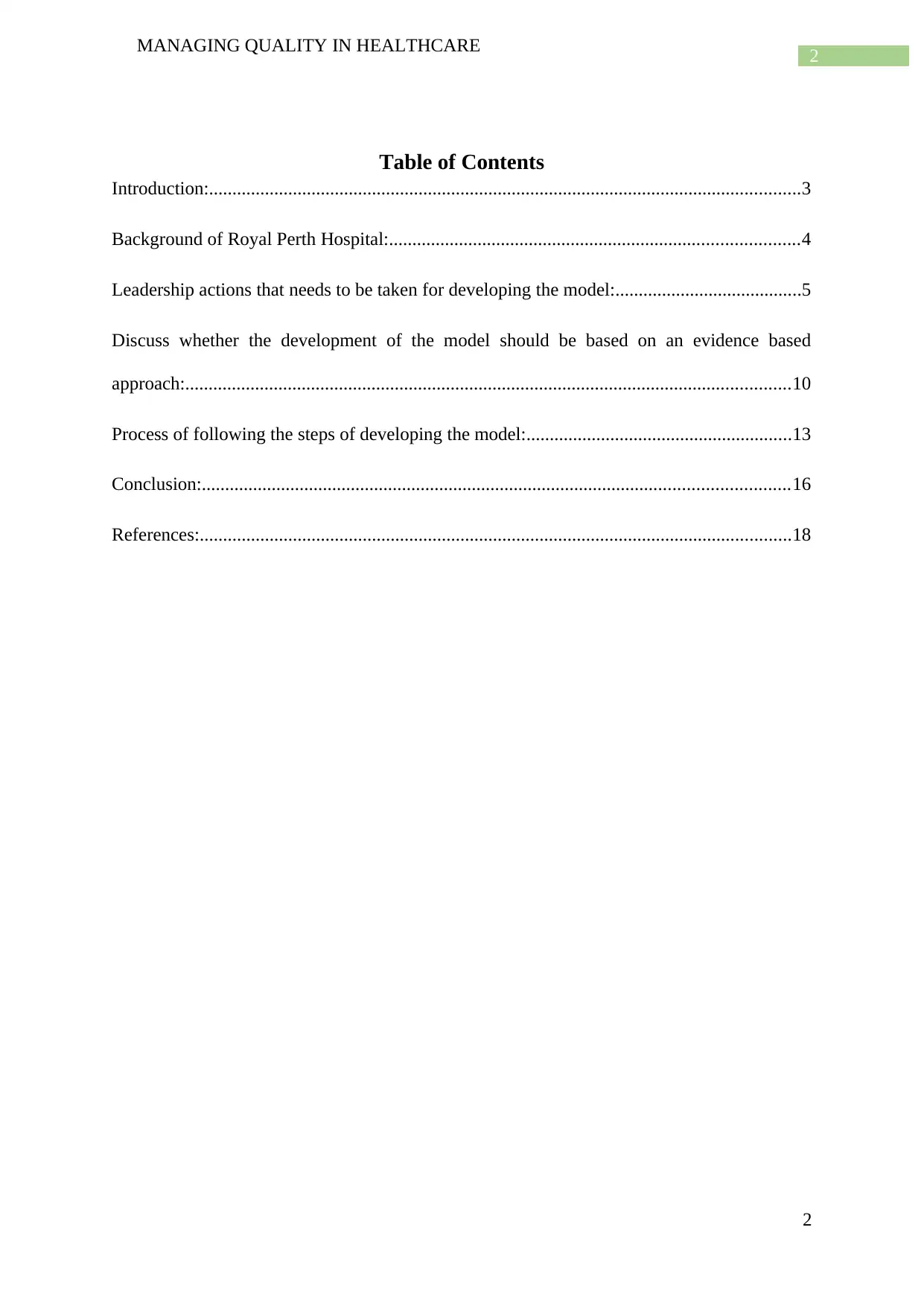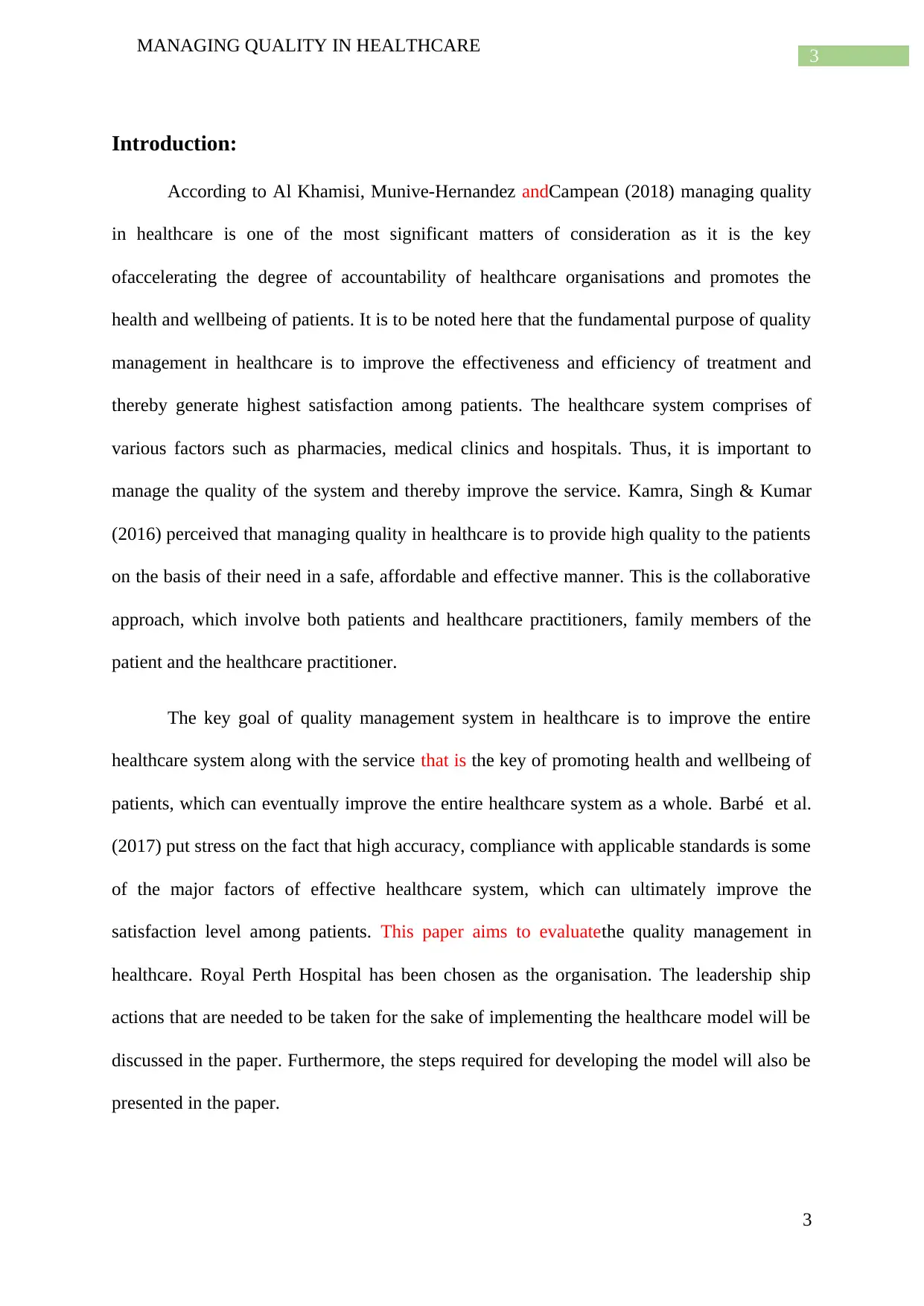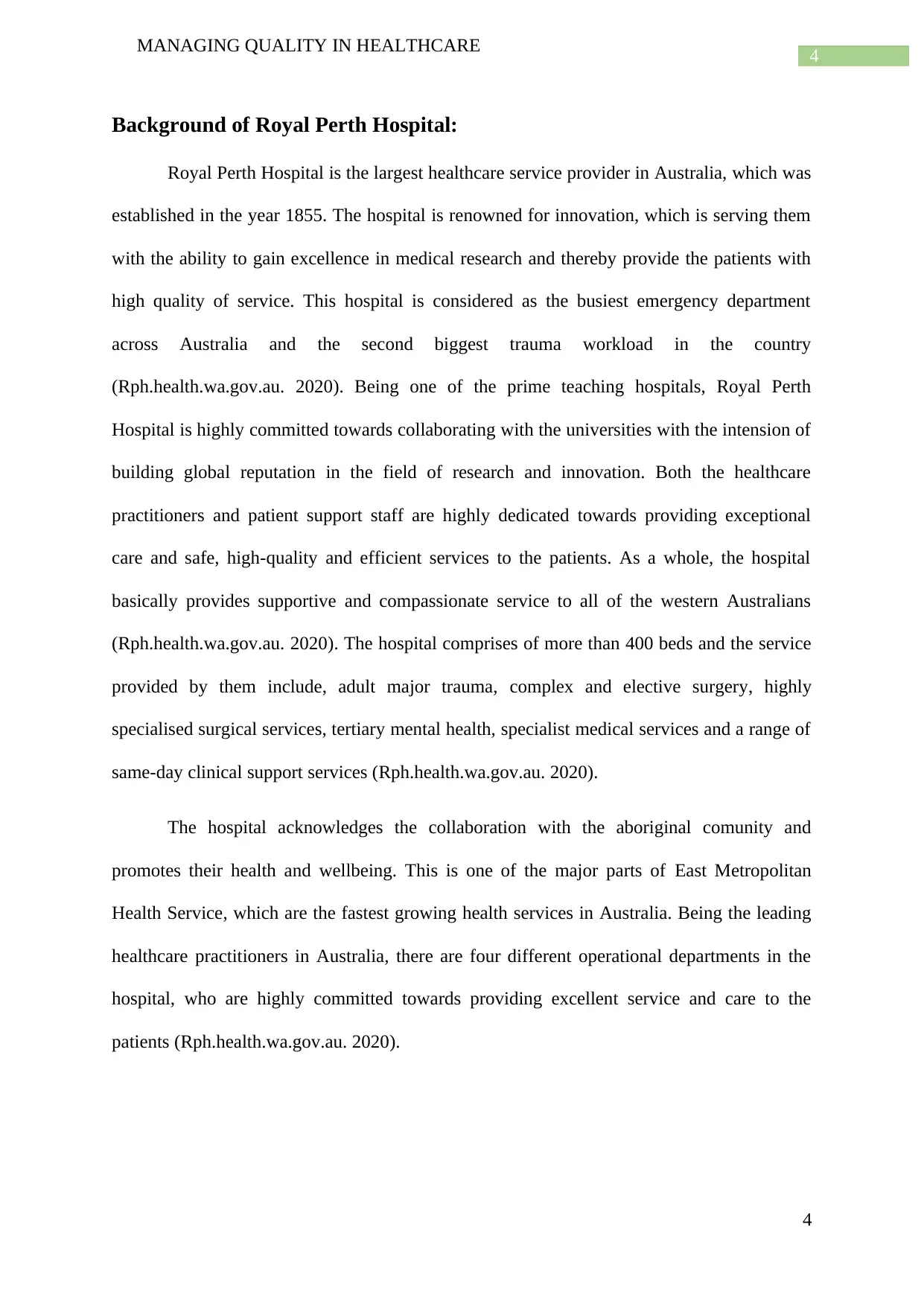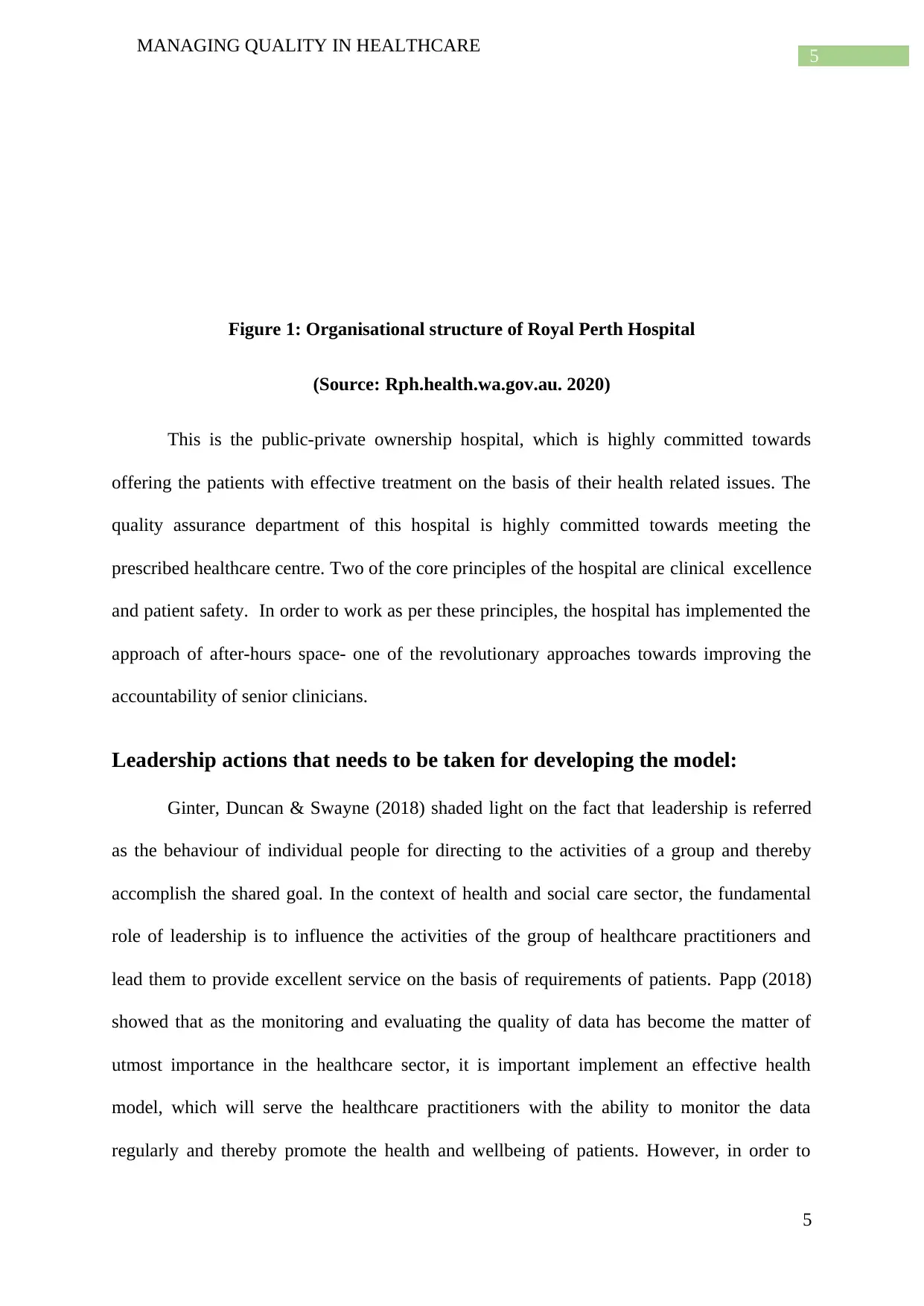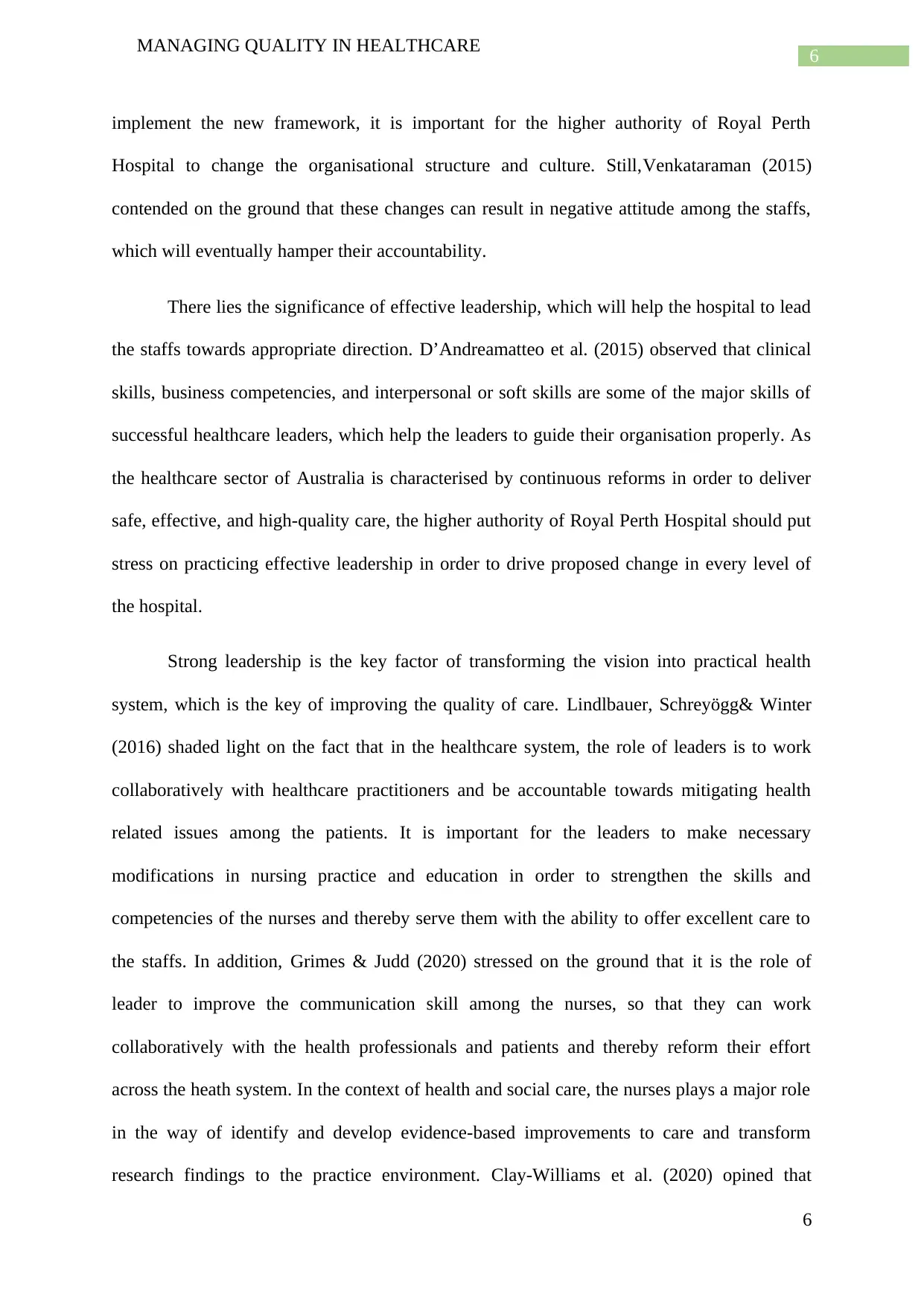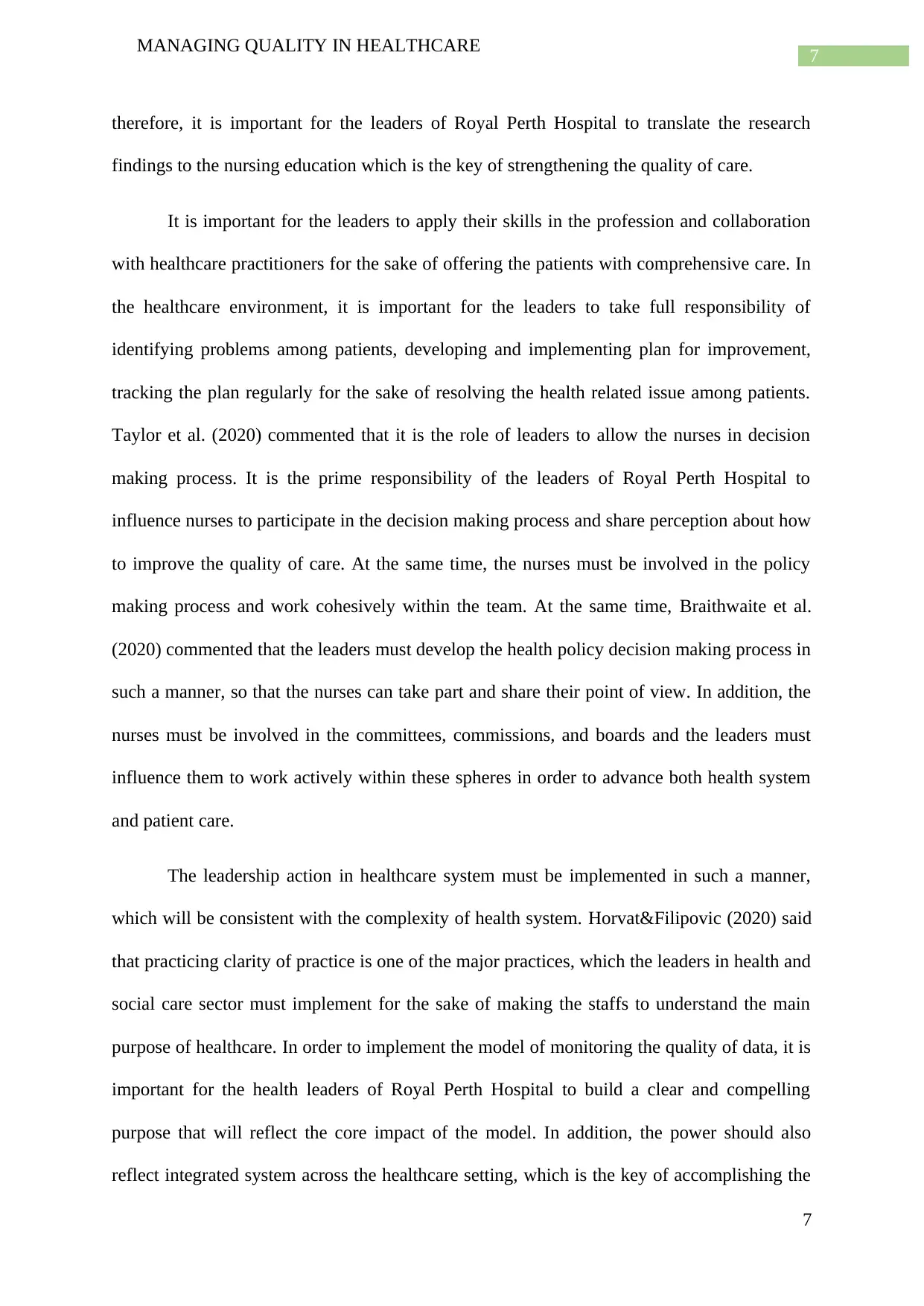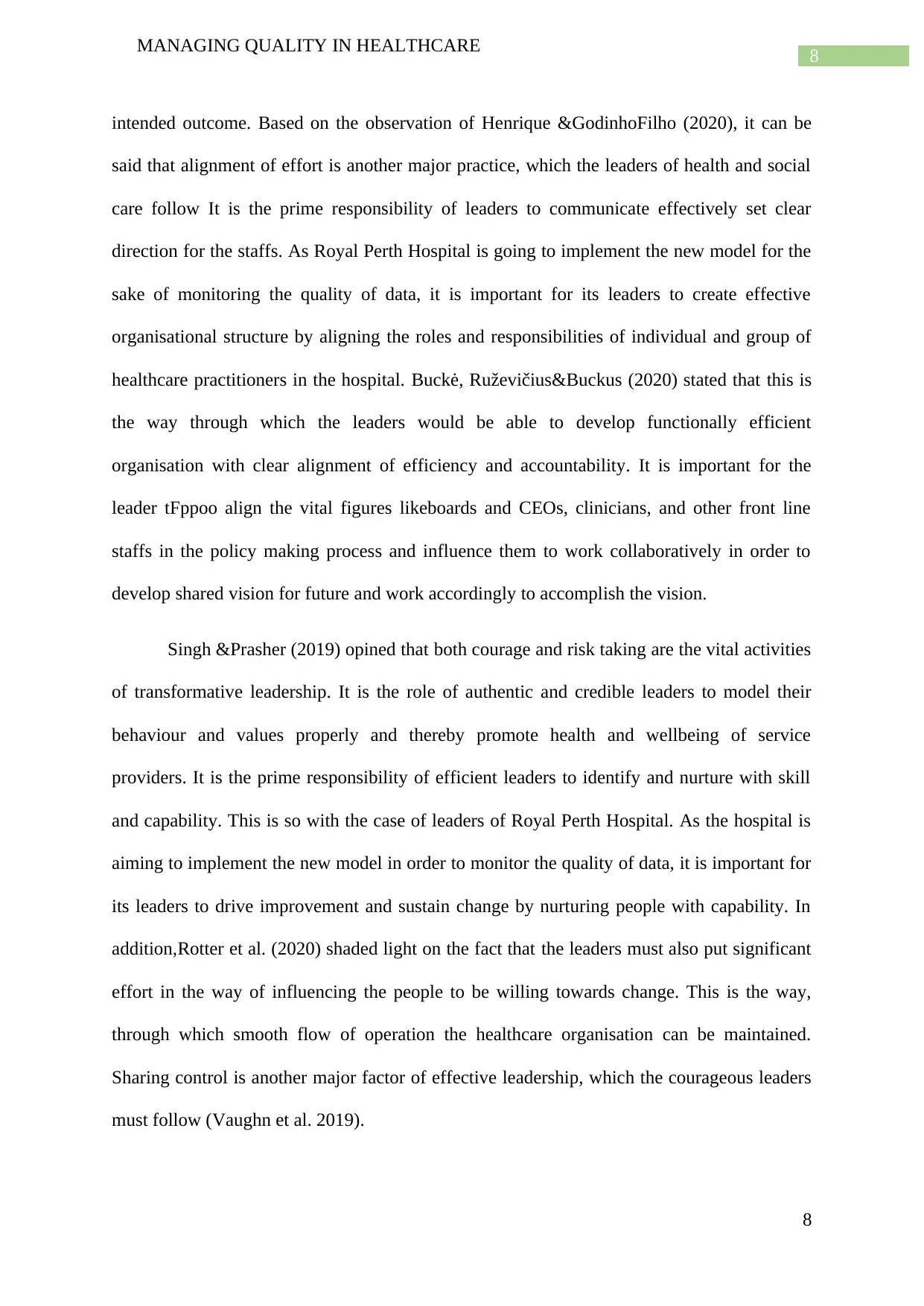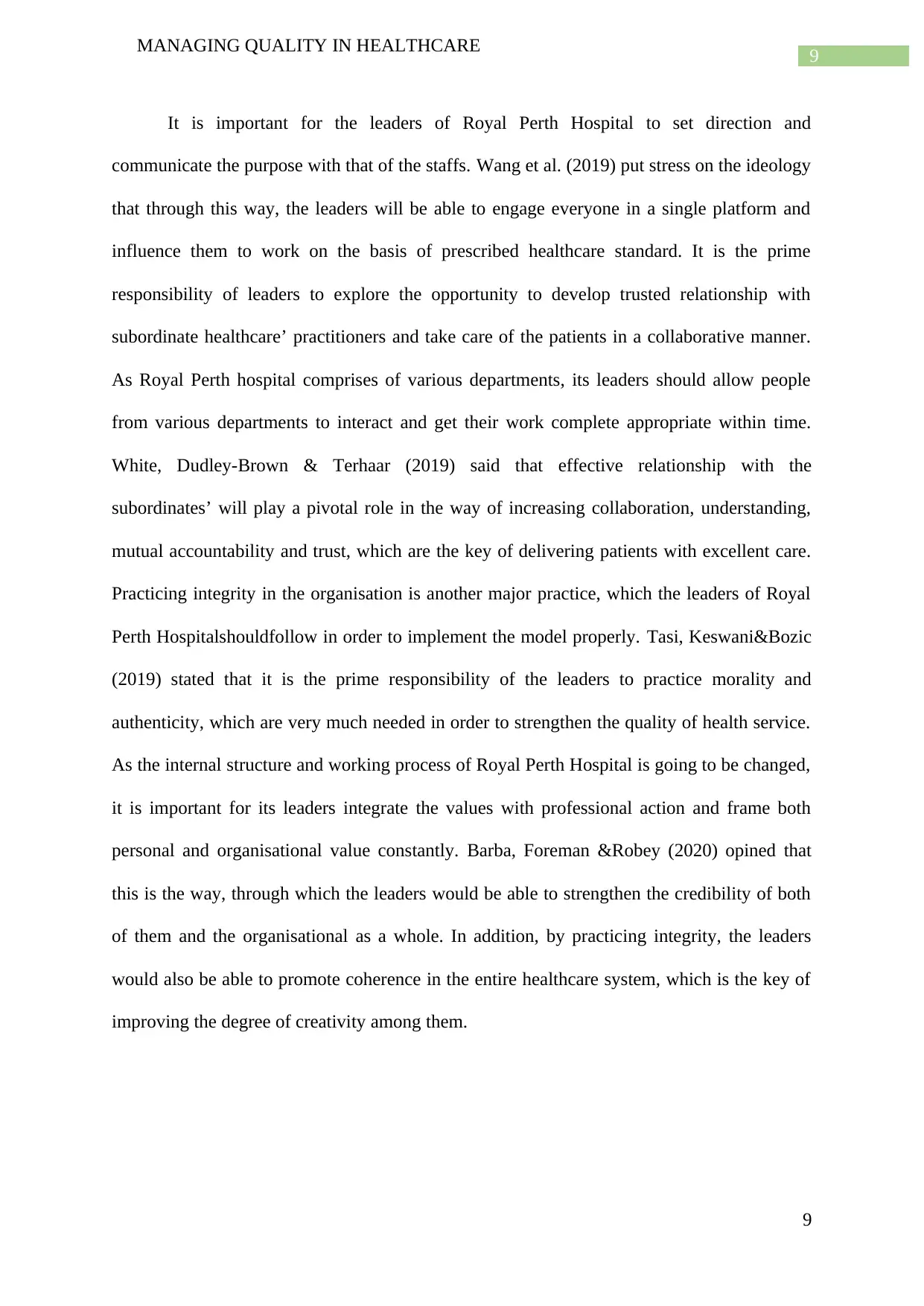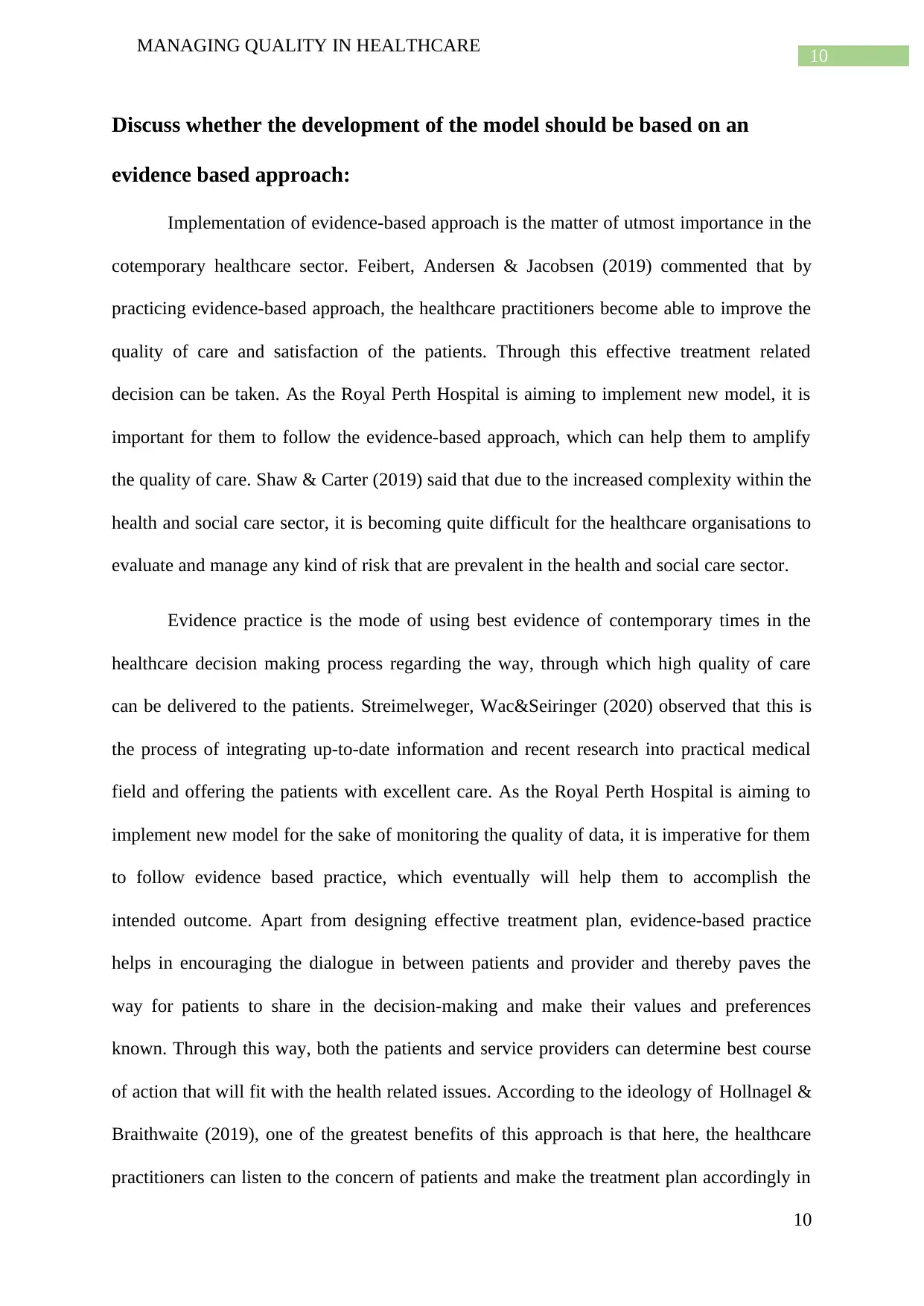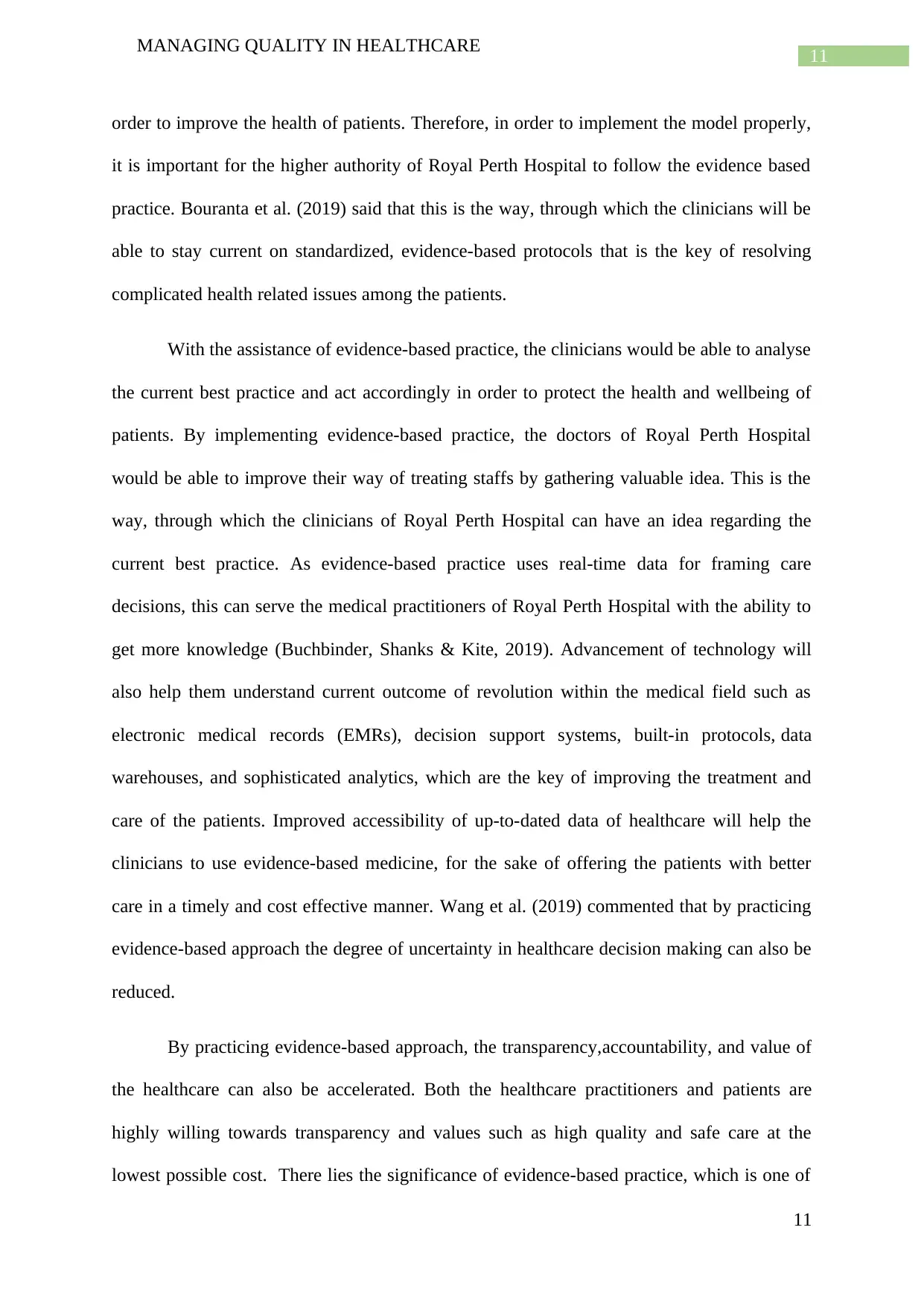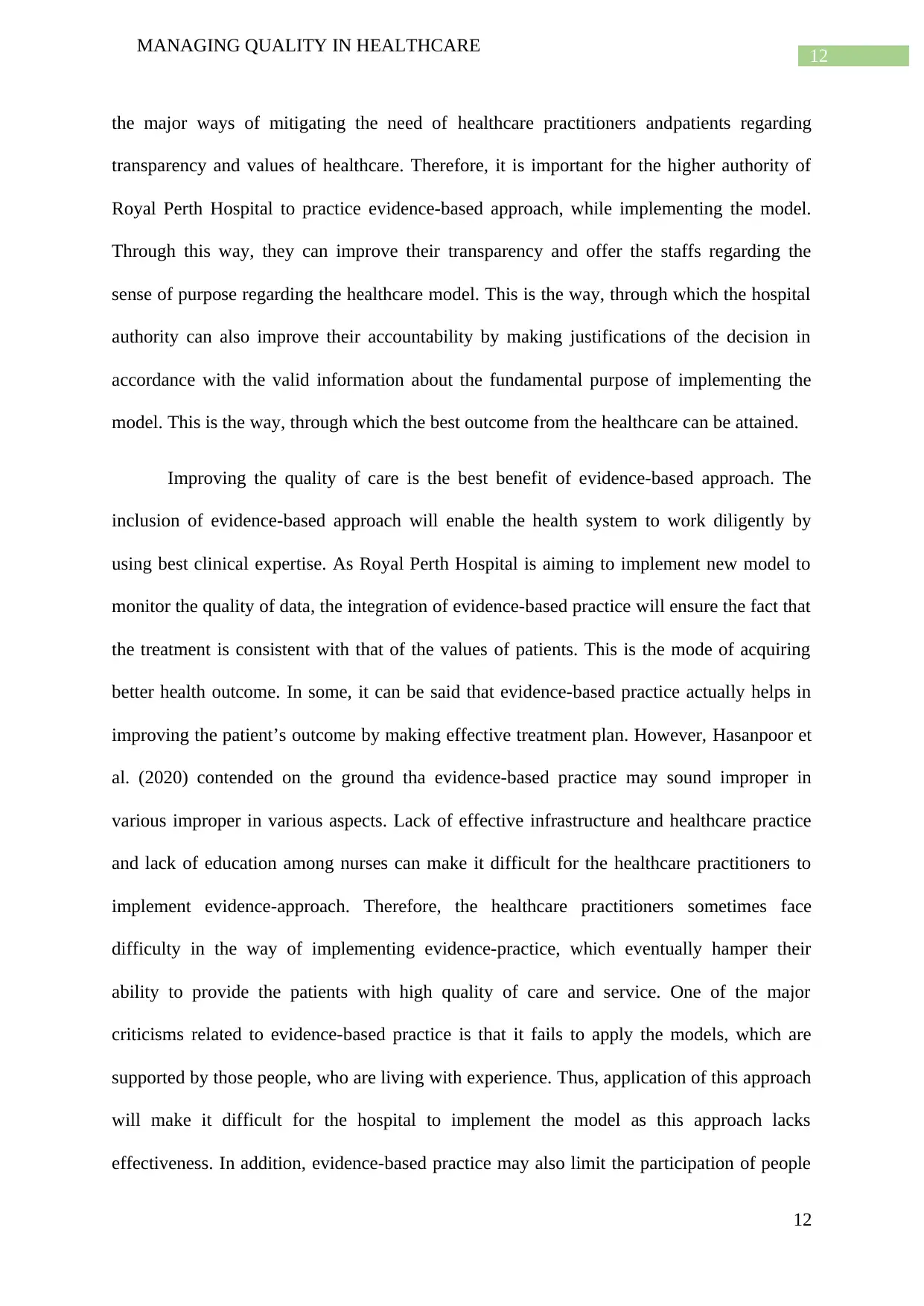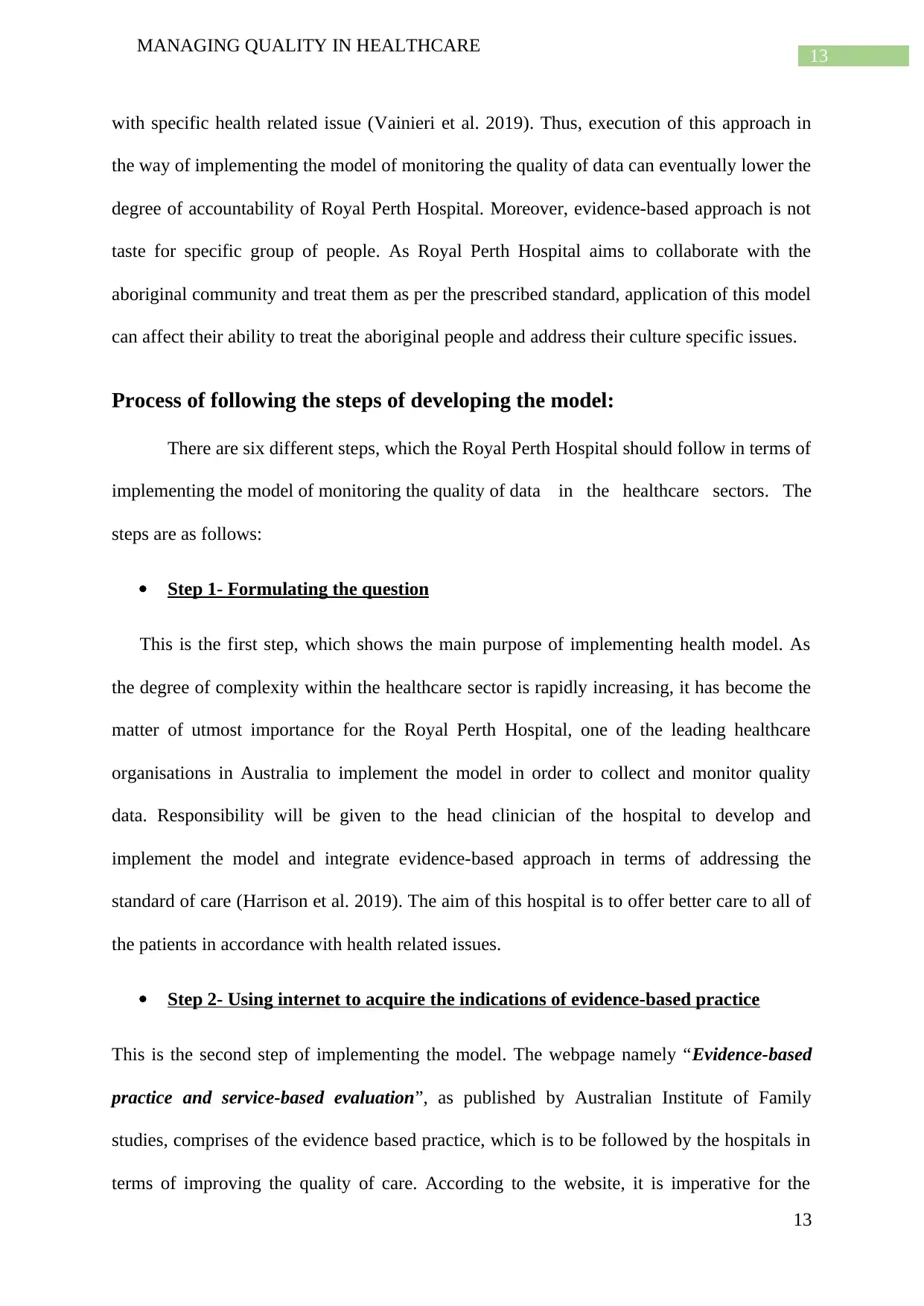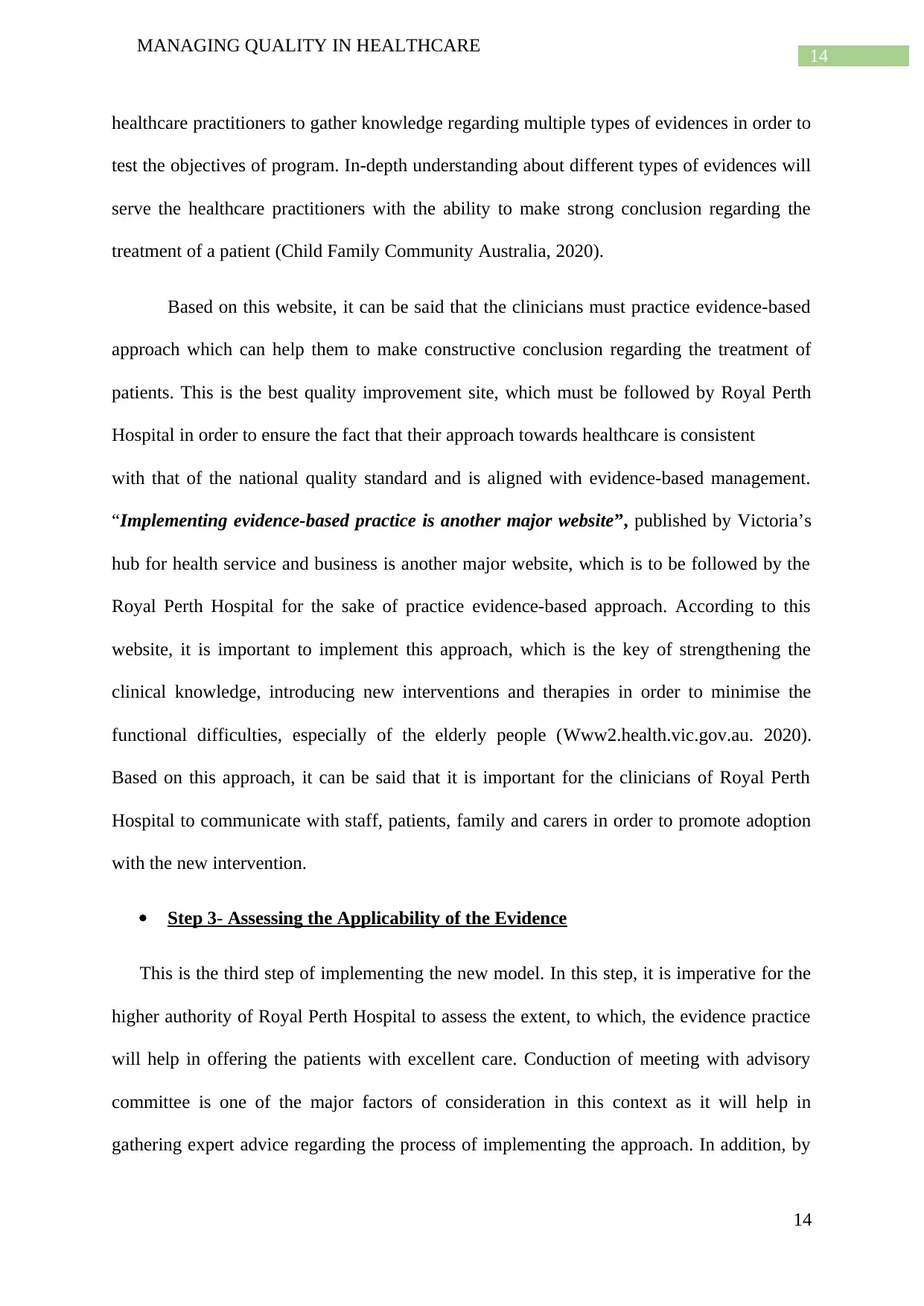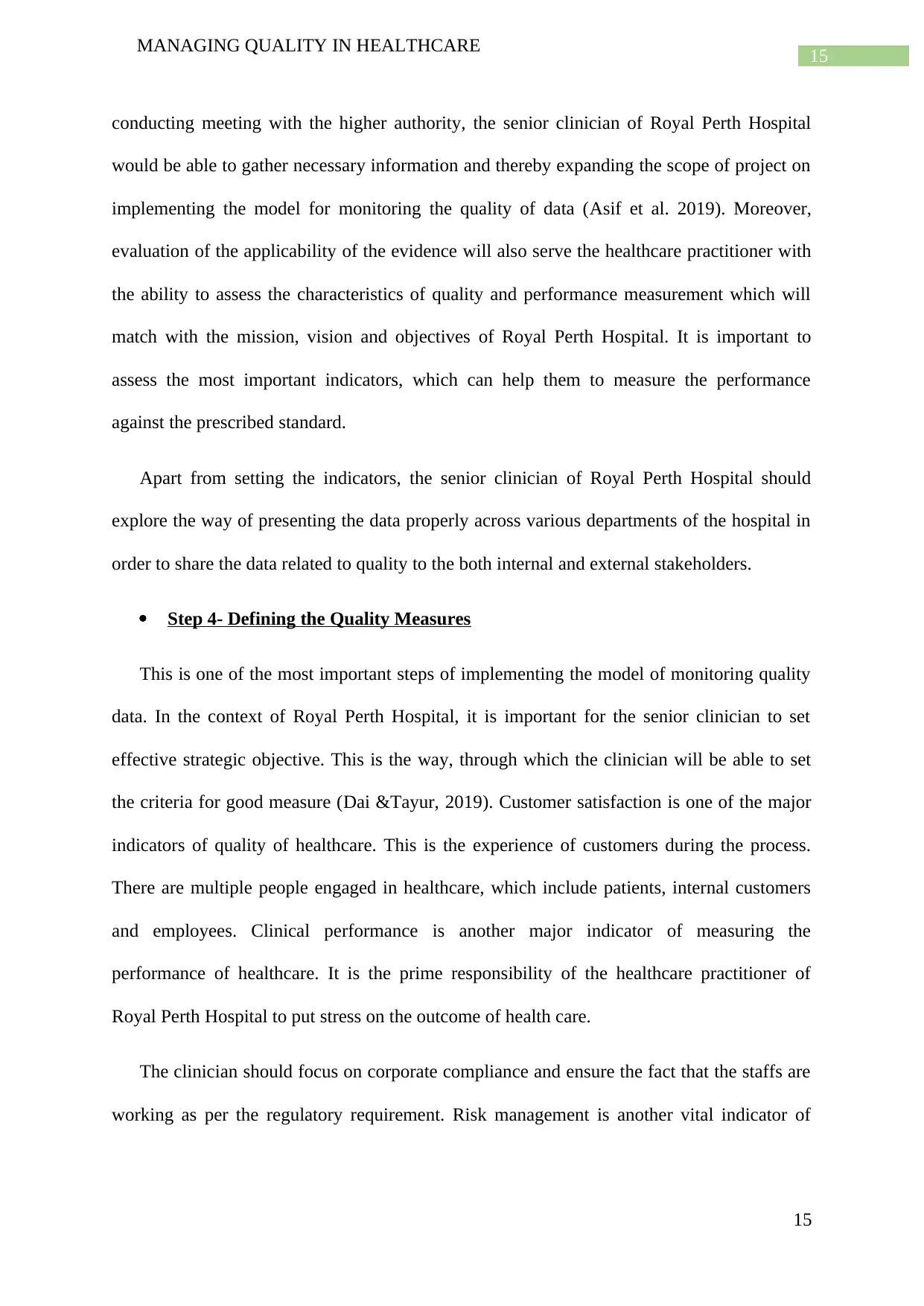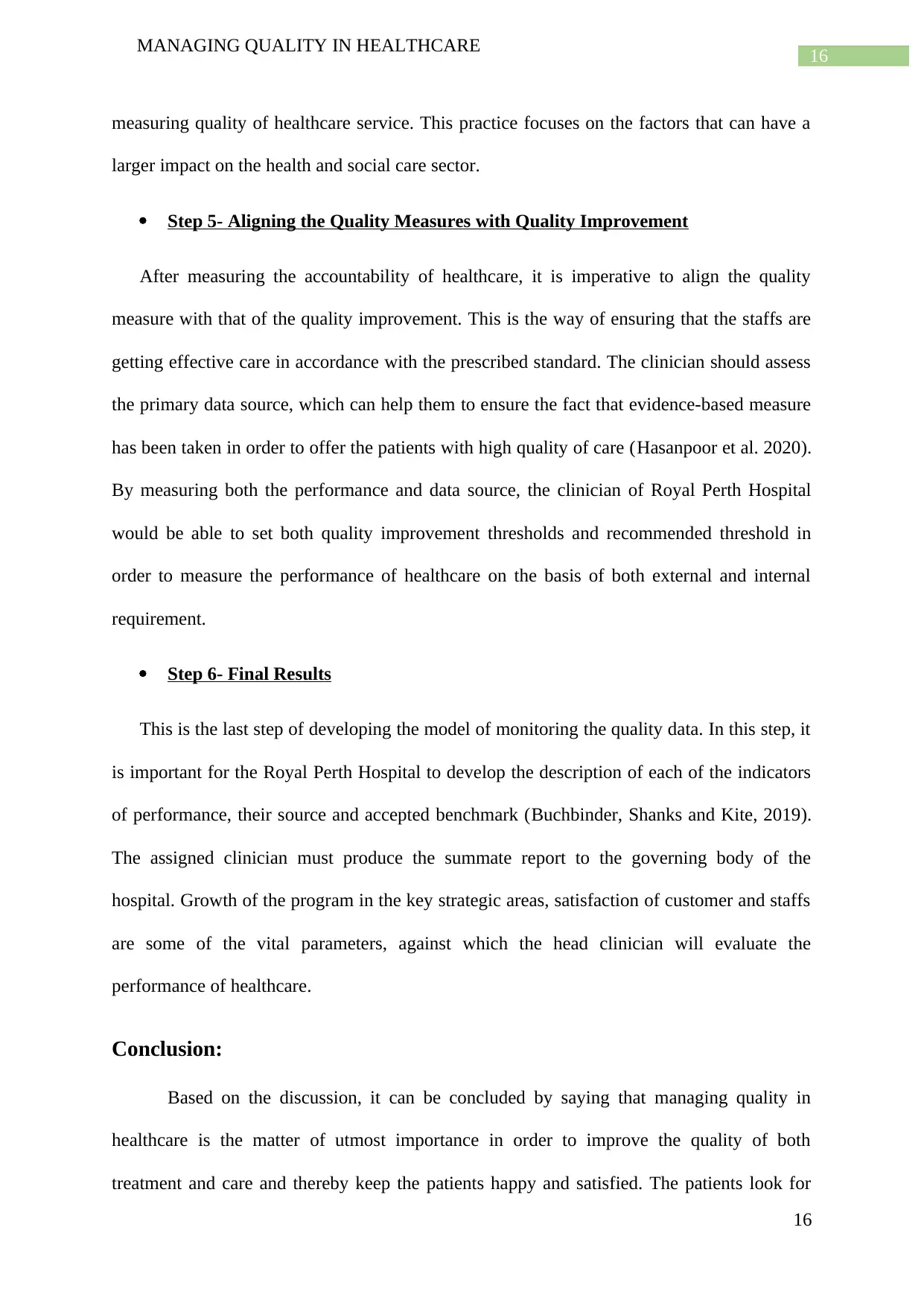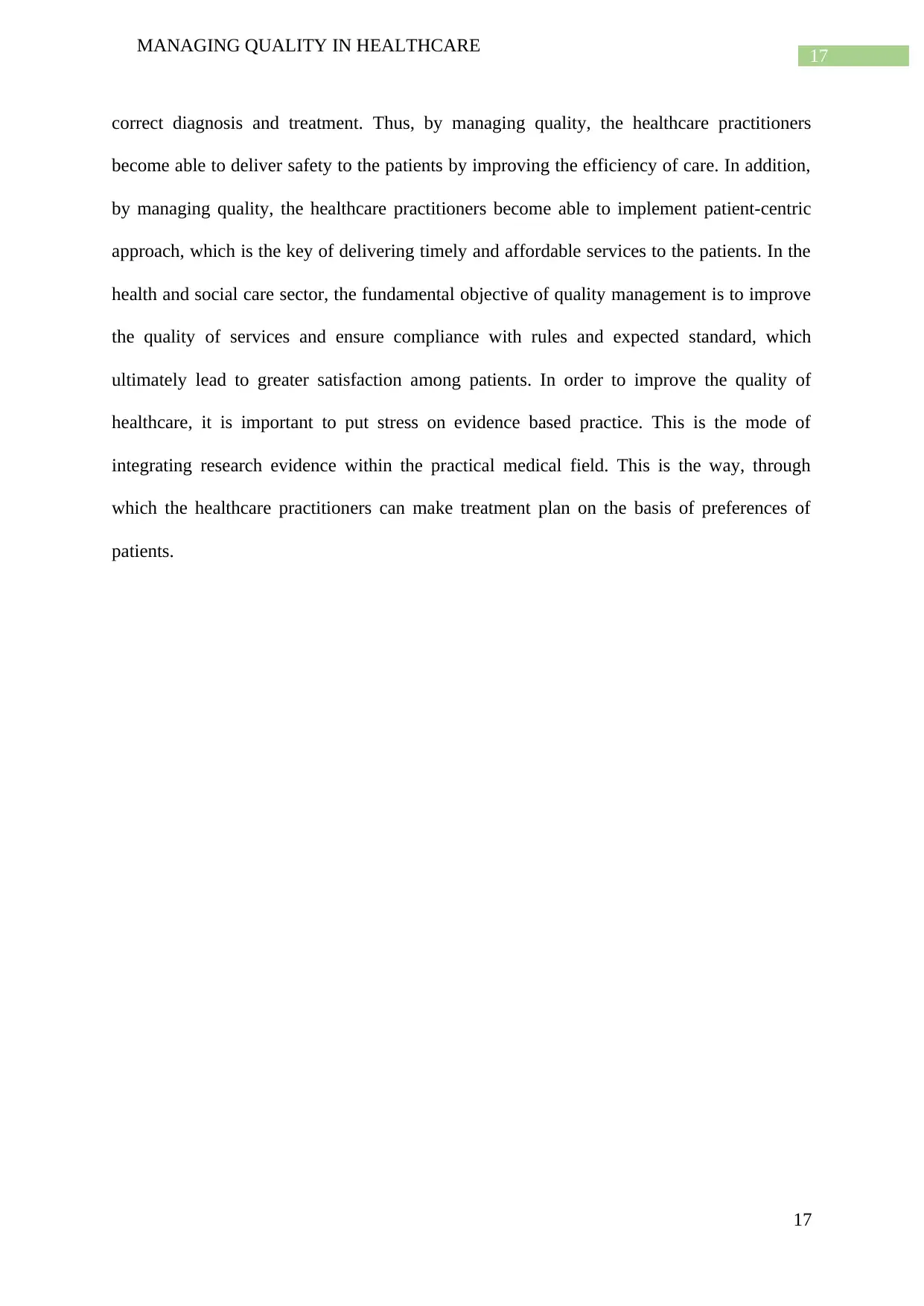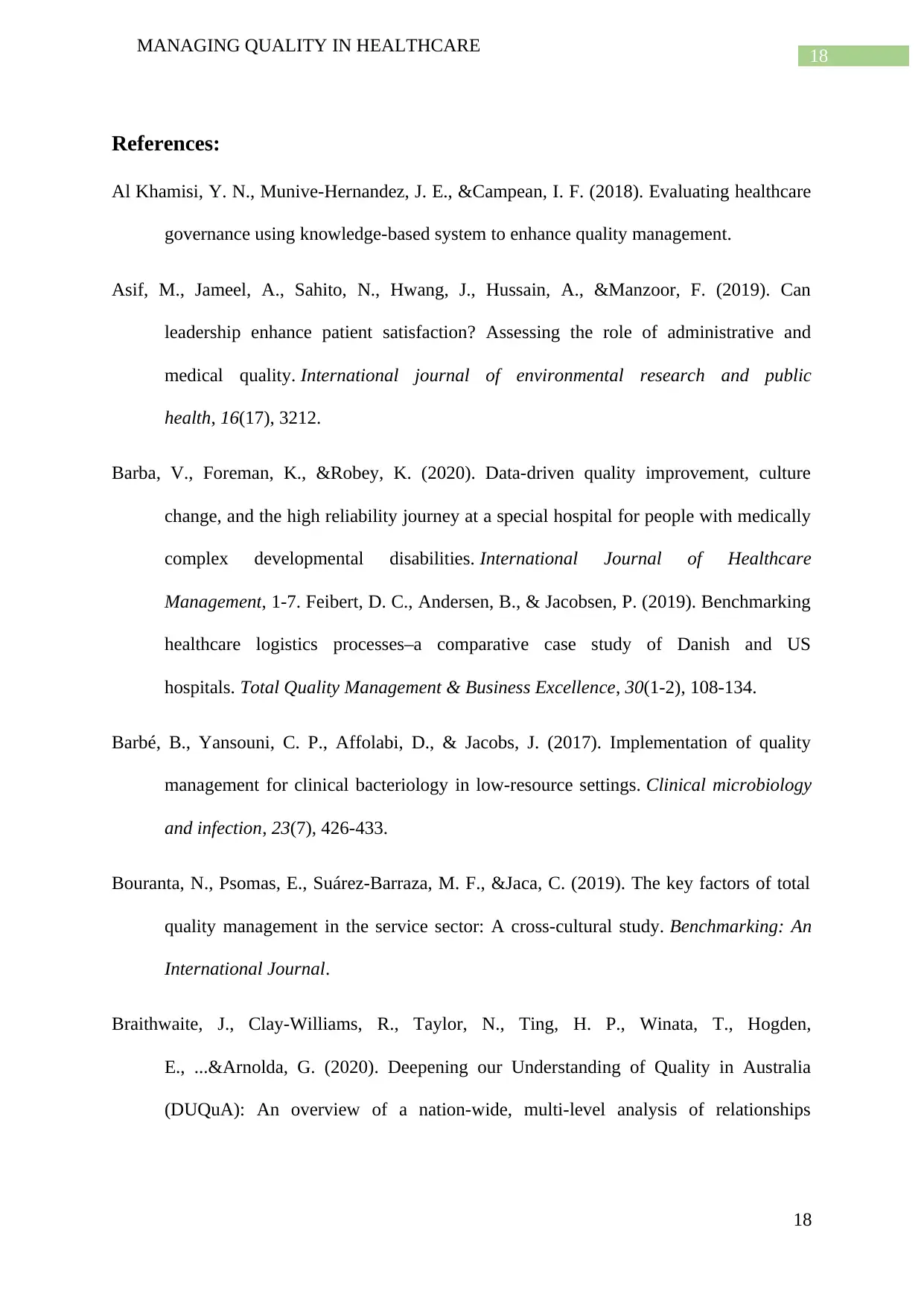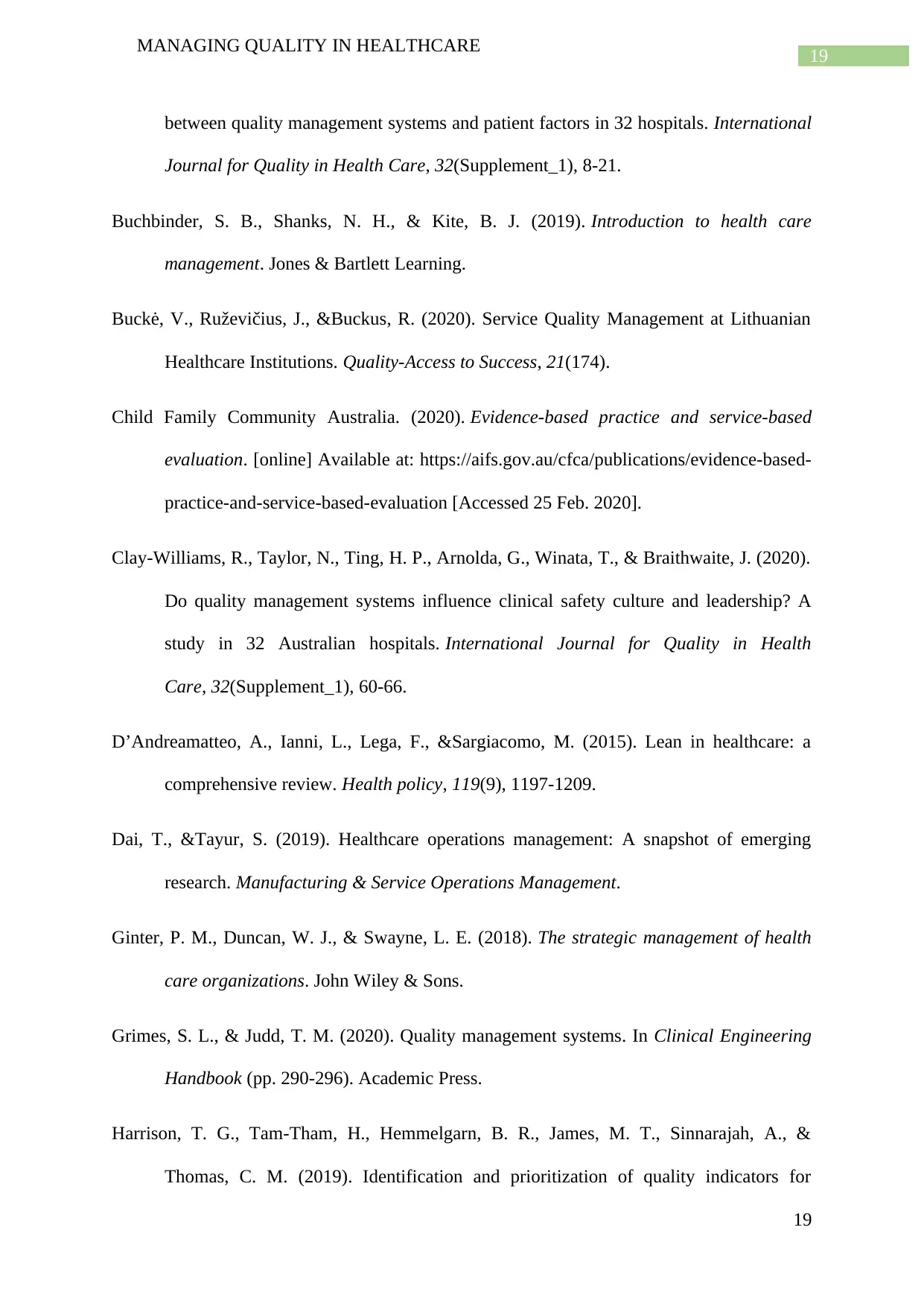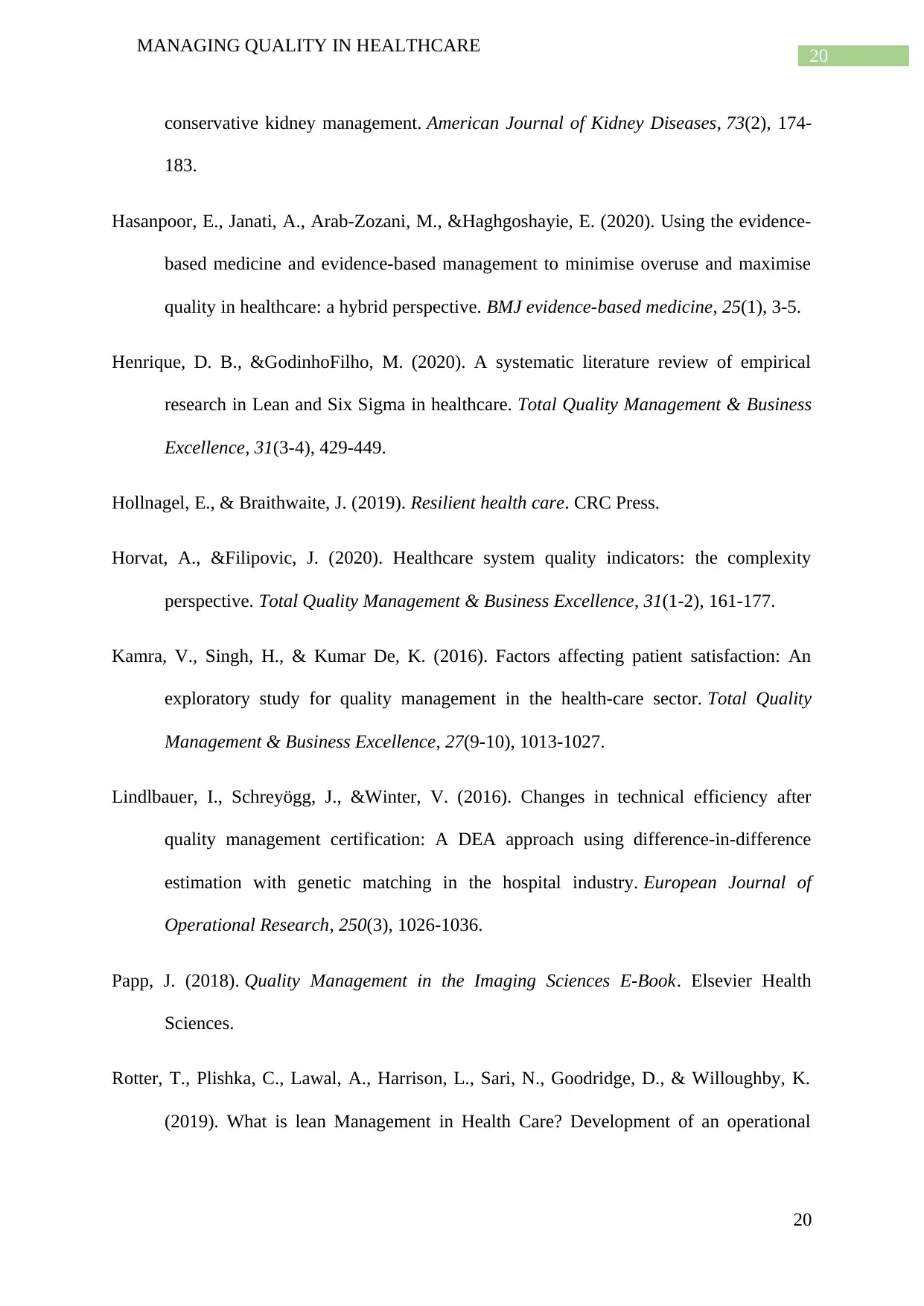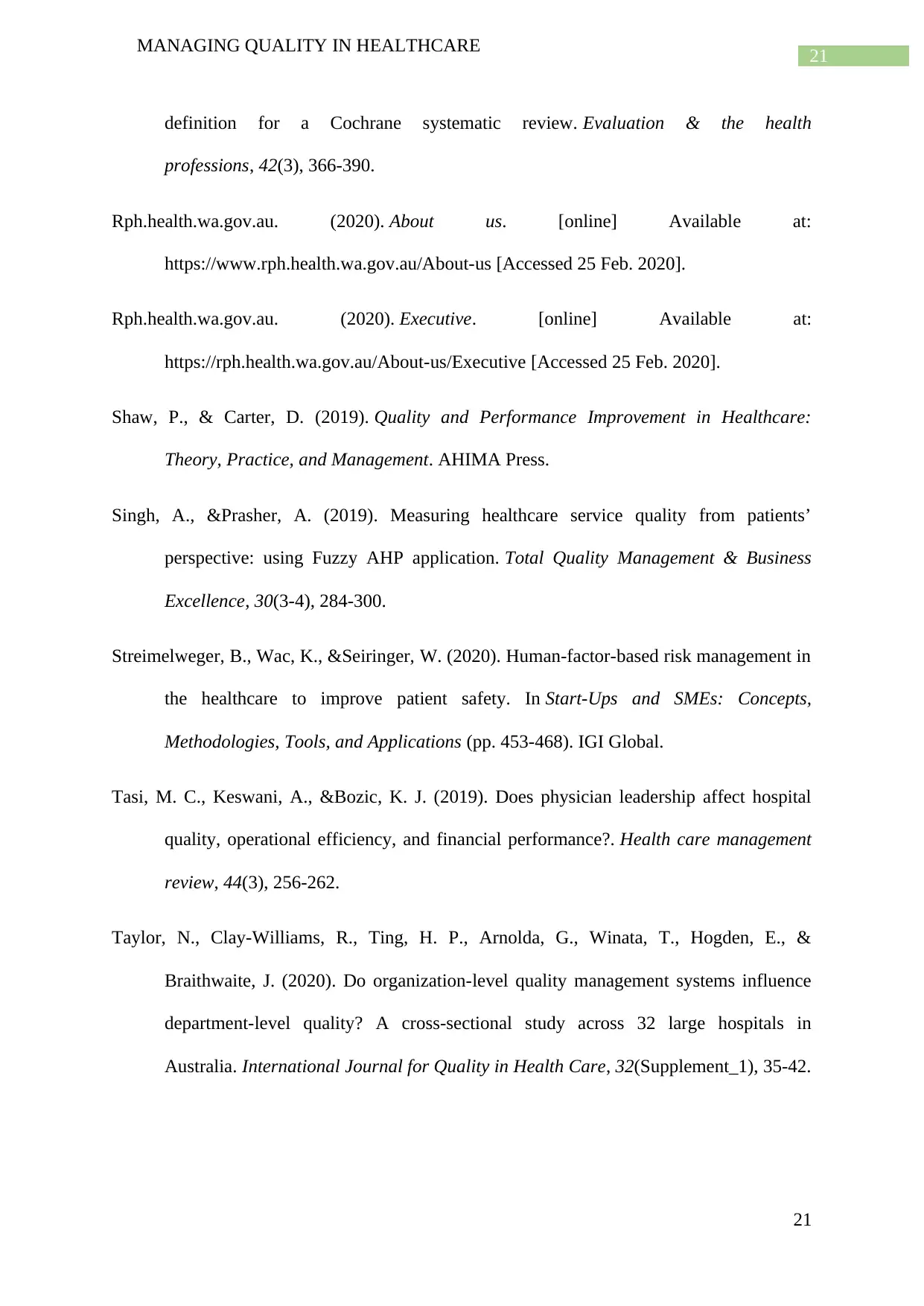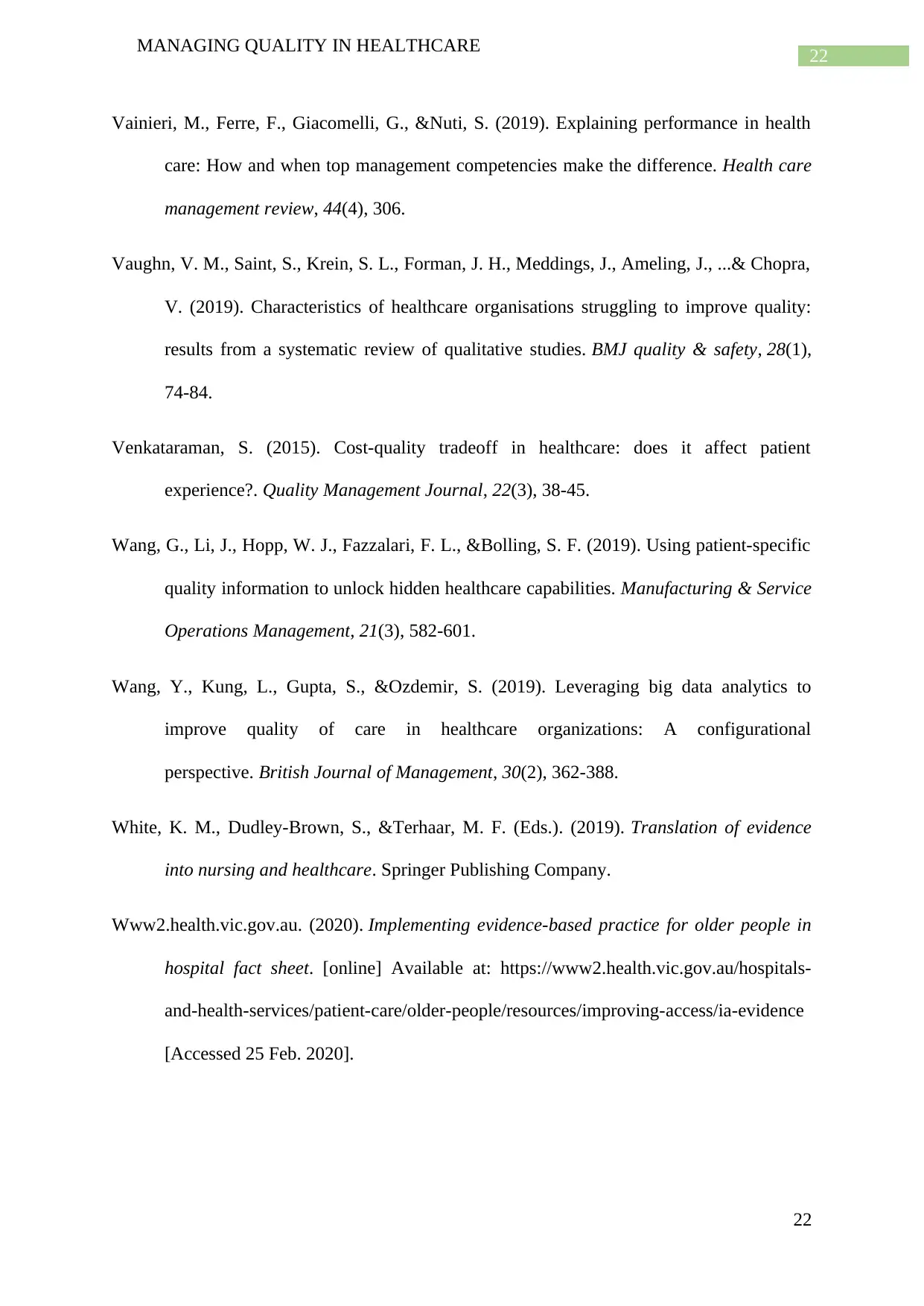Task Assume yourself to be a clinician who has recently been given a project to develop a model for collecting and monitoring quality data that would truly contribute to quality and bottom line. Therefore, you are in a situation similar to that of Cynthia Struk, described in the VNAHPO case study (Struk, C., & Neuhauser, D.(2009) in Reading List) Please develop and submit a report addressing the following: 1. Describe the chosen health organisation, the context where you will develop the model for collection and monitoring quality data. Examples of the content to cover in this section might include: what health services are offered in the organisation, what is the ownership structure (i.e. public, private or public and private) of the organisation, an organisational chart showing the different branches in the organisation (similar to figure II.6 in the case study) and information on quality assurance department, i.e., its role and effectiveness.
![[object Object]](/_next/static/media/star-bottom.7253800d.svg)
![[object Object]](/_next/static/media/star-bottom.7253800d.svg)
